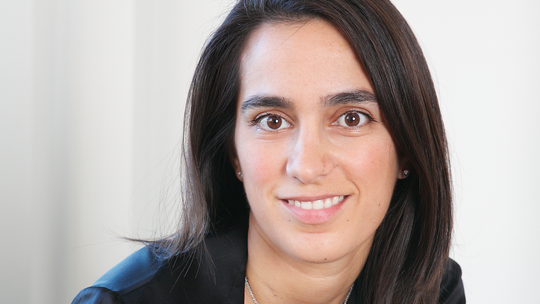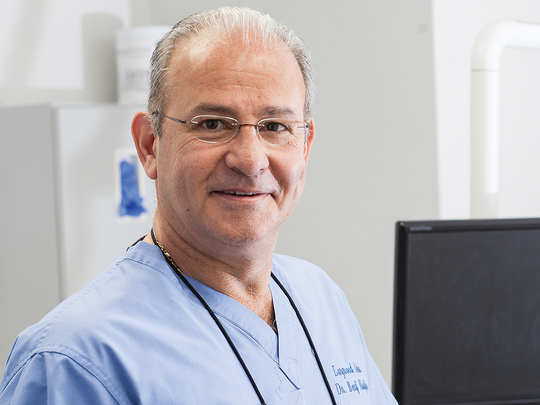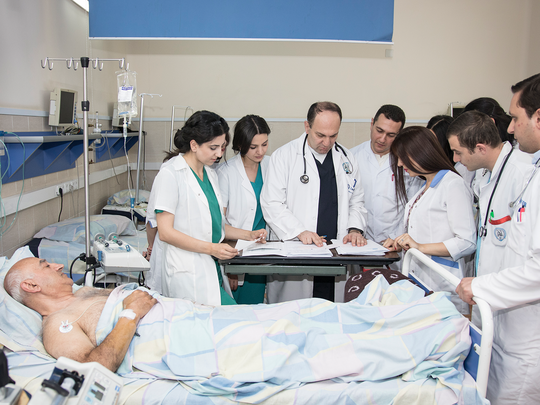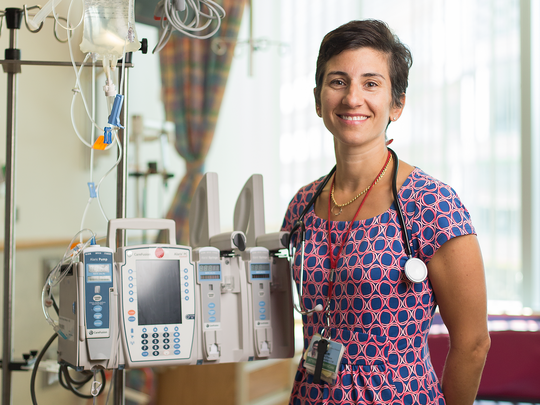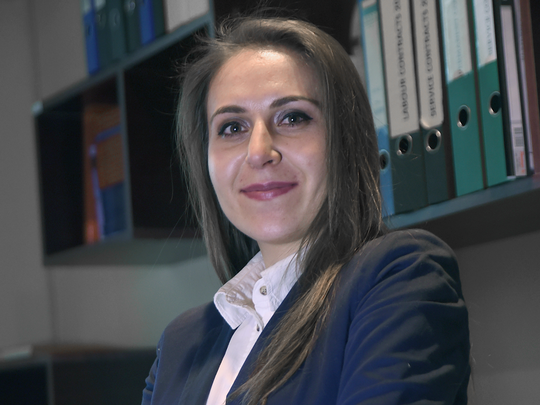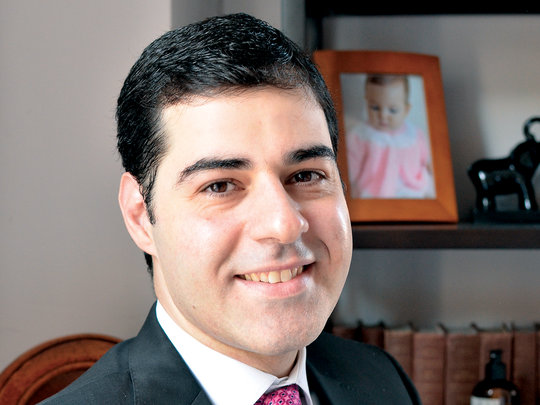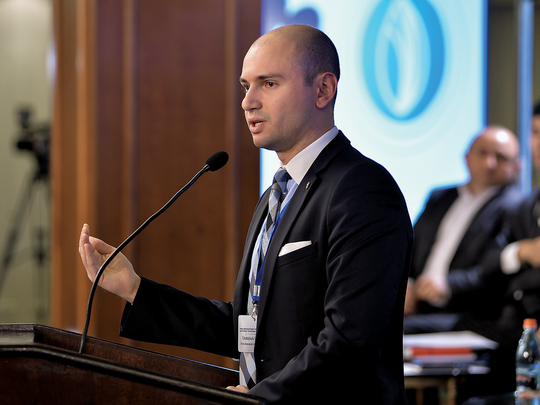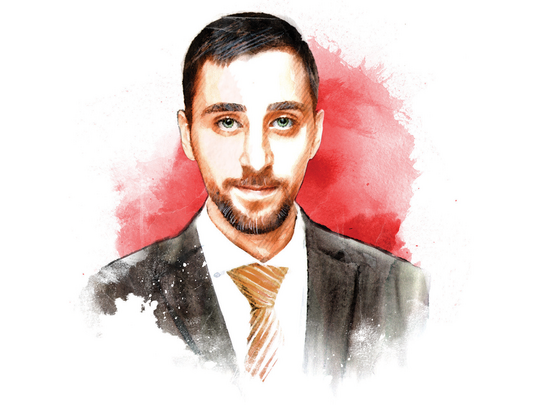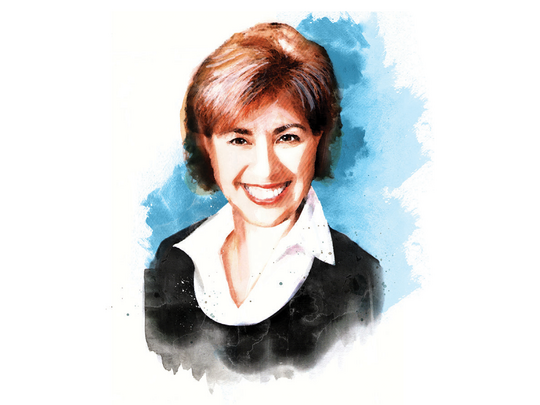Dr. Alicia Demirjian belongs to a unique group of physicians known as the master detectives of the medical profession. Infectious disease specialists are called upon to solve the difficult cases that baffle their colleagues. They investigate the history of a patient, searching for clues to identify the culprit, and treat the illness. Unlike their counterparts, their focus is not limited to any one organ or system, but rather to the complex interactions between microorganisms, or germs, that can infiltrate the entire human body. For Dr. Demirjian, unraveling the mystery is always exciting, but just as satisfying is the knowledge that “because of the nature of those interactions, when you treat one person with an infectious disease, you are also safeguarding the health of many more people.”
Children are much more resilient than we imagine, and being able to alleviate their suffering is the most rewarding thing I can do.
A gifted problem-solver with a keen eye for pattern recognition, Dr. Demirjian sorts and analyzes epidemiological data, lab results, and a patient’s history, carefully crafting the right questions and really listening to the answers, always alert to any seemingly trivial detail that may unlock an especially perplexing case. But what happens when the patient is a child, unable to fully articulate symptoms or recall recent history in detail?

It’s a challenge particularly well suited to this critical thinker whose first medical love was pediatrics. “Before I even started medical school, I knew I wanted to take care of children and really enjoyed being around them, which provided me with insight into their specific needs and how to communicate with them,” she explains.
Born in Beirut, Dr. Demirjian spent nine years in Paris during the Civil War before returning to Lebanon as a teenager. She began her medical career after graduating from the American University of Beirut in 2005. Eager to expand her medical knowledge and broaden her clinical experience, the ambitious young physician then moved to Boston the following year to finish her residency in pediatrics at the Boston Children’s Hospital and Boston Medical Center. One of the more challenging aspects of pediatrics, she admits, is that it can be emotionally very difficult to treat young children with severe illnesses. “At the same time,” she says, “I also find it very hopeful because children are much more resilient than we imagine, and being able to alleviate their suffering is the most rewarding thing I can do.”
In 2009 Dr. Demirjian combined her pediatric specialty with her burgeoning interest in public health in a pediatric infectious diseases fellowship at Boston’s Children Hospital, consulting on cases of children with complicated infectious diseases, while also pursuing her Master’s degree in Medical Sciences at Harvard Medical School. An avid pianist who speaks four languages, her work schedule quickly grew more demanding, leaving little time for much of anything else. “It definitely takes a toll on your personal life,” she laughs. “Being a doctor requires a lot of commitment. It’s physically and emotionally challenging and you have to work long hours over many years before you can find the right balance and know when to slow down to avoid getting overwhelmed.”
To help achieve that balance, Dr. Demirjian sought out career opportunities for the sake of not only professional development, but also personal growth. Restless after six years in Boston, she ventured south to Atlanta in 2012 to work as an epidemiologist with the Epidemic Intelligence Service of the Centers for Disease Control, investigating outbreaks caused by respiratory pathogens, analyzing epidemiological trends, and examining national rates of antibiotic prescriptions for children. “I’ve really enjoyed every single move I have made,” she says, “and while it’s scary at first to leave your comfort zone, travelling teaches you great communications skills. You are exposed to other cultures and you also learn a lot about yourself.”
It wasn’t long before the travel bug bit Dr. Demirjian once again, this time moving to London. She divides her time between academic work, where her research focuses on antimicrobial resistance and infection prevention and control, and the hospital where she continues to treat children with complex infections as a Pediatric Infectious Diseases doctor.
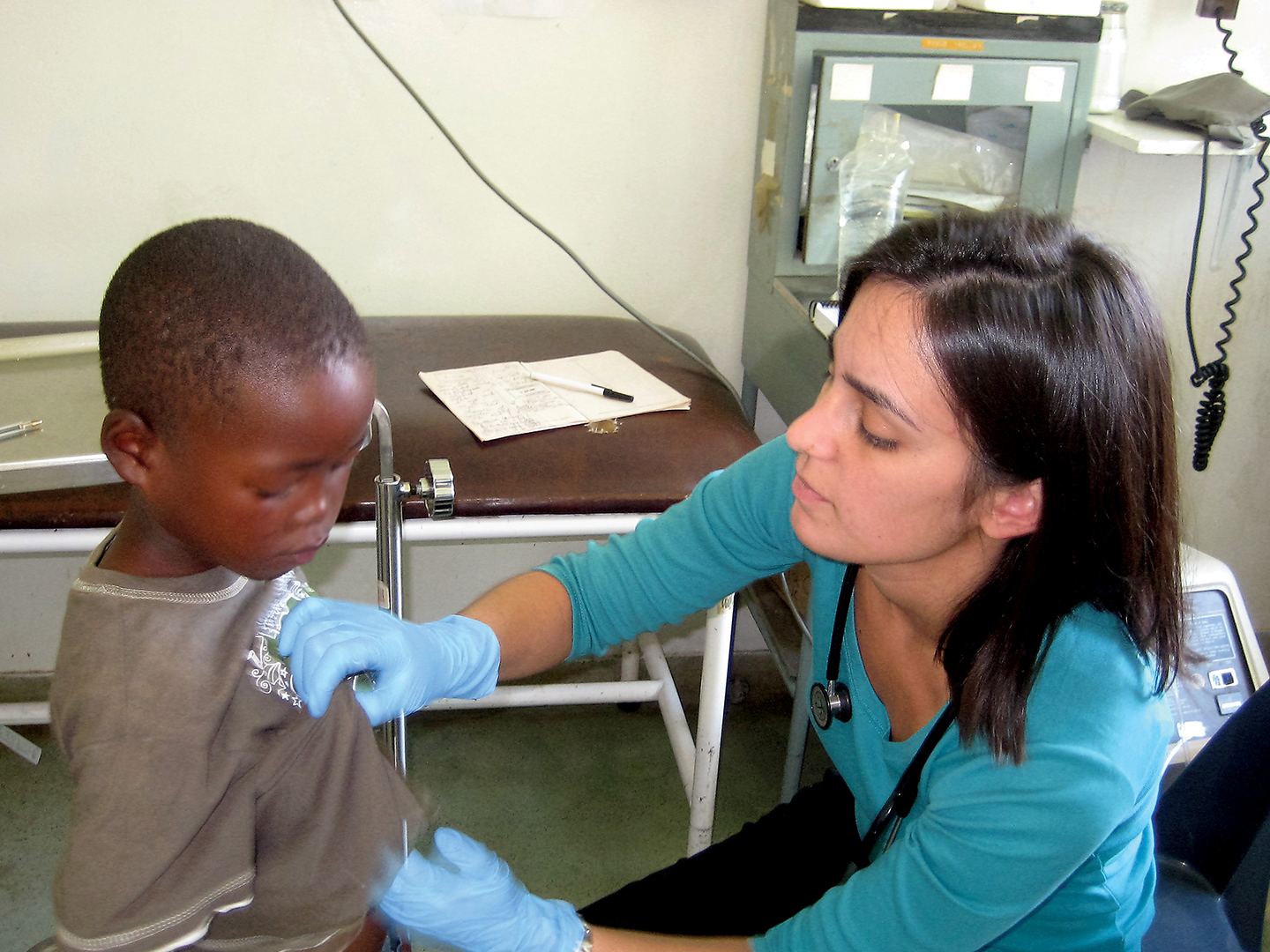
In the U.K., as in every country in which she has lived, she remains close to her Armenian roots by trying to be as involved as possible with the local chapter of AGBU. “It’s my way of giving back,” she says, “because I feel like I have been given a lot of opportunities through AGBU. And it’s a way to reinforce my sense of belonging no matter where I am, reminding me of my family values and my Armenian heritage.”
They are the values of honesty, integrity and dependability that her parents modeled growing up in Beirut. Her father, Avedis Demirjian, is a prominent Lebanese-Armenian businessman and former chair of AGBU Lebanon. When he moved the family to Paris in the 1980s to escape the Civil War in Lebanon, he made sure to enroll his daughter at the Alex Manoogian Saturday School. There she cherished dance, music, and playing chess with newfound friends who shared the same values and culture, while learning to read and write in Armenian.
As she grew older, Dr. Demirjian maintained a close relationship with AGBU, attending Camp Nubar, participating in the New York Summer Internship Program, and becoming a member of the AGBU Young Professionals network. “I felt this really nice kinship, surrounded by a network of other young professionals in a similar stage in life and from a similar background,” she says.
She is particularly thankful to her parents for emphasizing that Armenian heritage and instilling at a young age the importance of working hard in school. “They taught me what it meant to be Armenian, that you are the person always available if someone needs help, you are the one people can trust, and that if you say you are going to do something, you commit to it and get it done. My parents were also always supportive and understanding, even when I missed family events,” she says. “I owe them quite a lot.”
Remaining grounded in her Armenian roots is a goal Dr. Demirjian continues to pursue through her involvement with several Armenian medical associations she considers especially important, as a way to connect with others but also to give back by participating in medical missions to Armenia. As part of the volunteer effort, Dr. Demirjian trained family practitioners on how to use antibiotics appropriately, lectured on the risks of antimicrobial resistance and discussed coordinating medical aid to Nagorno-Karabakh.
Throughout her extensive medical education and demanding, multifaceted career in the unpredictable world of infectious diseases, Dr. Demirjian makes sure to pause every now and then to appreciate her efforts. “Enjoy the journey,” she advises incoming medical students, “because it’s a very long road ahead, but it’s the most beautiful job in the world. Always remember that and only good things will come your way.”
Banner photo by Zoe Norfolk

